Organizations everywhere are starting to embrace the idea of artificial intelligence, seeking ways to utilize the groundbreaking technology to help their business and their employees. Can artificial intelligence be used to improve office environments? To see if AI was up to the task, we asked AI language models what they ‘thought’ were the most important issues facing today’s hybrid workplace.
Environmental Sustainability:
“Increasing awareness of environmental issues led to more organizations incorporating sustainable practices into their operations and considering their environmental impact.” (AI response)
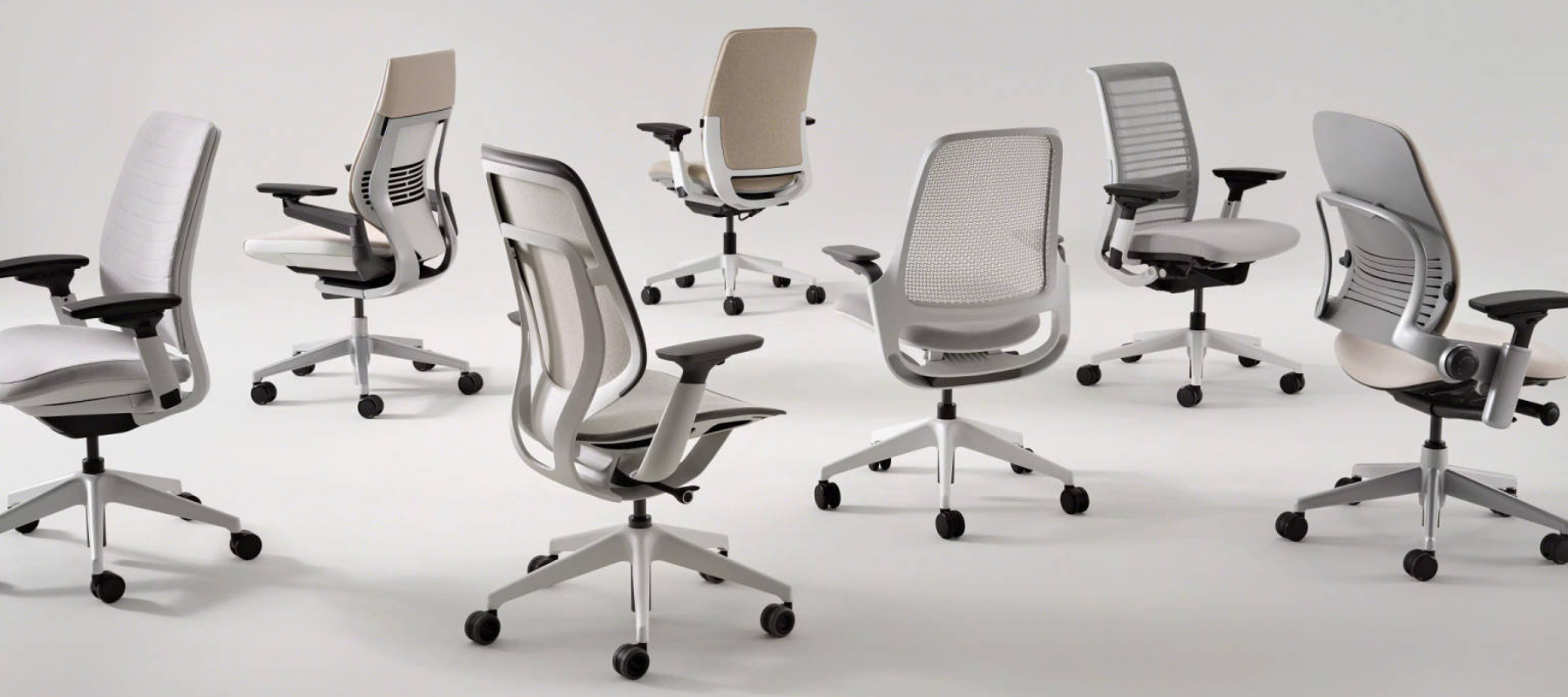
At Heritage, we believe in the importance of sustainability, and take on responsibility as a company to reduce our carbon footprint and implement sustainable solutions for both ourselves and our clients. By adopting sustainable practices, companies can reduce their environmental impact, increase energy efficiency, and promote social responsibility. Sustainability can also improve employee satisfaction, attract customers who value eco-friendly products and services, and contribute to a positive corporate image.
Communication and Collaboration:
“Maintaining effective communication and collaboration between remote and in-office workers is crucial. Ensuring that everyone feels connected, included, and informed can be challenging. Balancing virtual and in-person interactions to foster teamwork and prevent isolation is key.” (AI response)
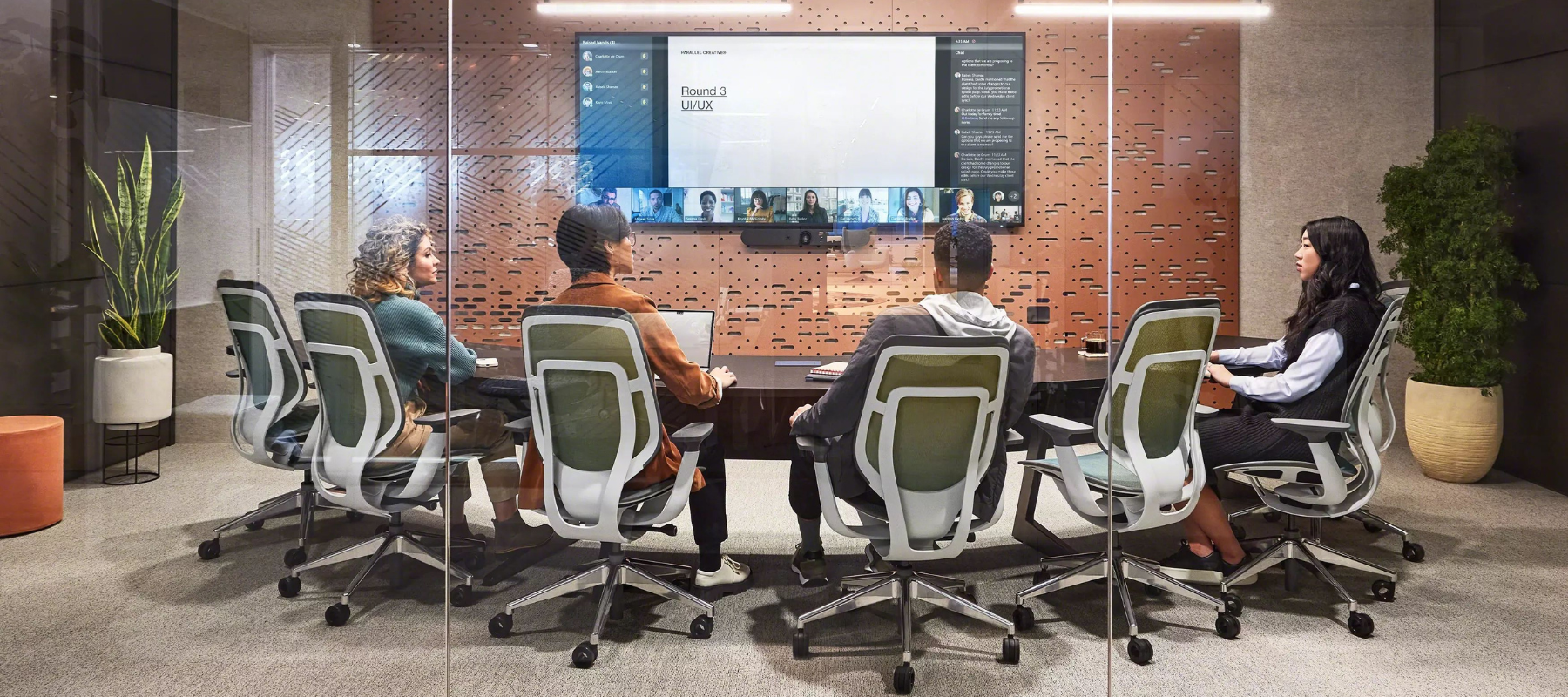
We know hybrid collaboration is hard and can take some getting used to. As remote and distributed teams become commonplace in the workplace, and every meeting space is now a video space. To create the best possible hybrid work experience, organizations will want to offer a range of spaces and technology solutions to easily support diverse types of collaboration — from a planned creative session to an impromptu one-on-one and everything in between.
Workplace solutions like the NeoCon award winning Steelcase Ocular can help support hybrid collaboration with a unique curved shape creating a more inclusive and collaborative meeting table for people on both sides of the camera. Designed in collaboration with Microsoft, Ocular allows everyone in the room to see one another and encourages eye-to-eye contact between in-person and remote colleagues.
Technology Infrastructure:
“A hybrid workplace requires robust technology infrastructure to support remote work, including secure access to company resources, video conferencing tools, and seamless integration of digital platforms. Maintaining data security and providing tech support for employees are essential.” (AI response)
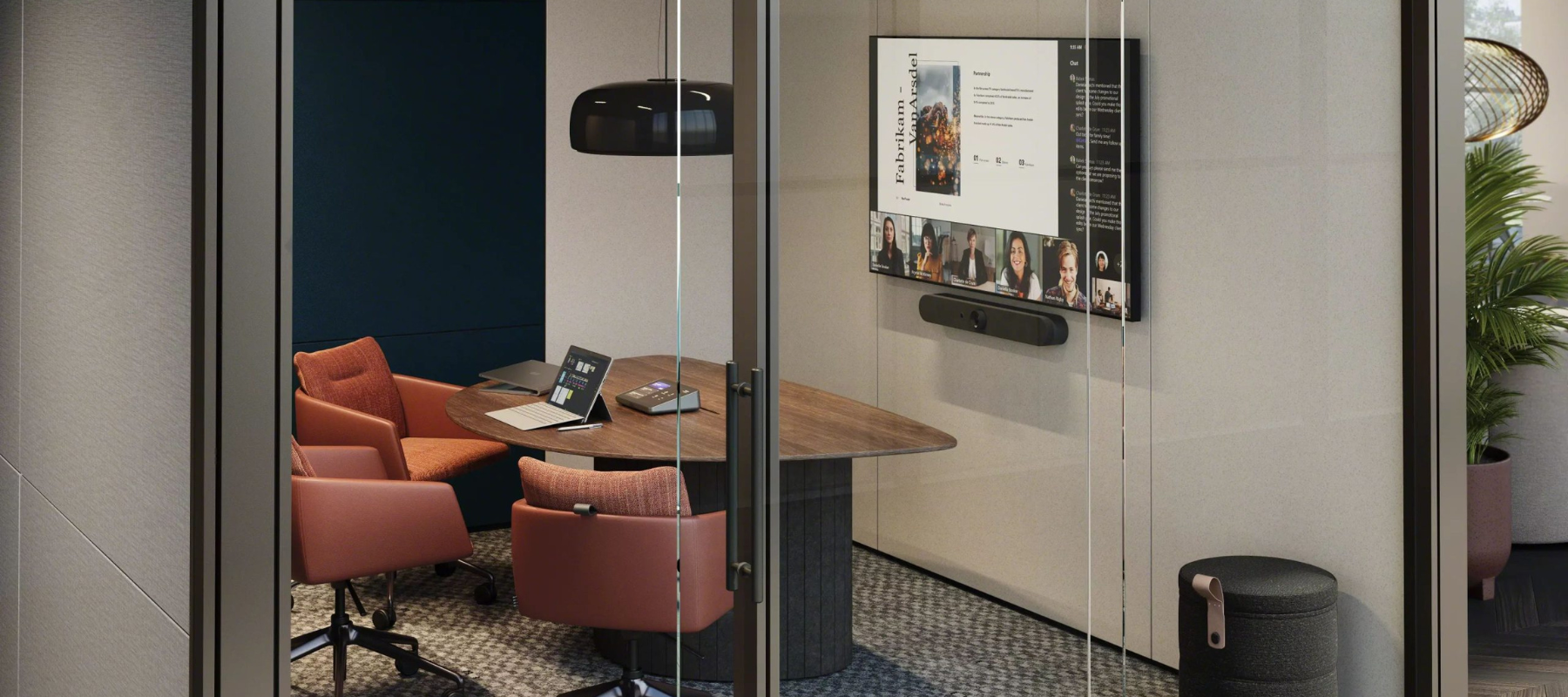
In order to have successful collaboration in the hybrid workplace, organizations will likely need to upgrade their technology infrastructure. With a mix of remote and in-person work becoming the norm for many companies, technology has become an essential tool for staying connected and productive.
Video conferencing tools like Zoom and Microsoft Teams allow us to hold virtual meetings and collaborate on projects in real-time, regardless of physical location. Products like Everwall or V.I.A. modular walls by Steelcase can seamless host technology within meeting rooms or open areas, facilitating hybrid collaboration and bridging the gap between in-person and remote co-workers. Utilizing modular walls in the workplace can also create meeting spaces and focus rooms without the need for traditional construction, maintaining design flexibility for future growth.
Employee Engagement and Retention:
“Keeping employees engaged, motivated, and satisfied remained a challenge. Organizations were exploring various strategies to foster a positive work culture, provide growth opportunities, and recognize employee contributions.” (AI response)
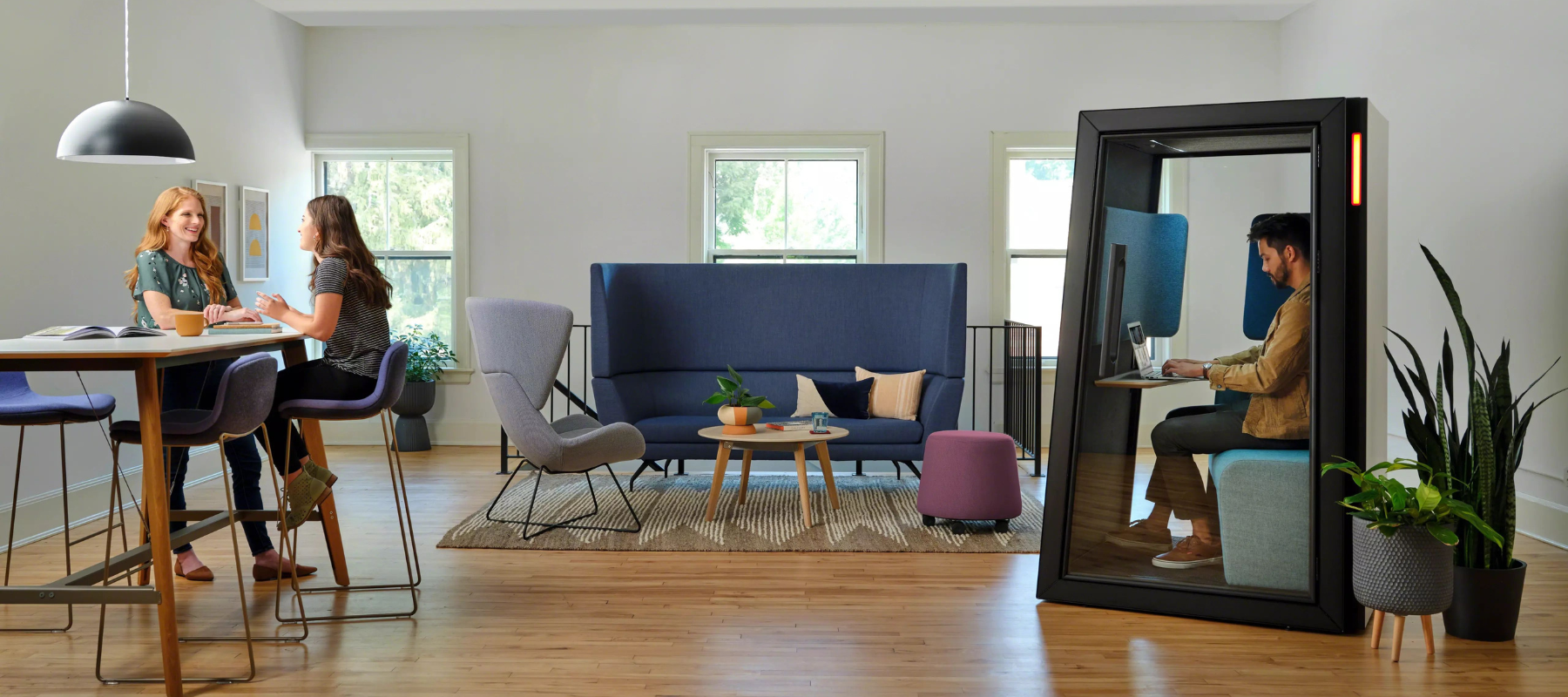
As companies now experiment with hybrid workplace policies, to give their employees more choice and control over where they work and when, facilities managers and human resource professionals should not ignore the role of the physical office as a retention and talent attraction tool. The workplace is key to help organizations attract, retain, and engage talent. Not only is space an expression of the company, it sends important cultural signals about what new talent can expect in your organization.
We all missed collaborating with co-workers during months when we all worked from home. But the office must still be able to provide quiet, focus spaces for employees to do heads-down work and block out distractions. The Heritage Team loves office pods like the Orangebox On The QT as an easy solution in the open office. Pods can provide employees with a space to do their work, take a quick call, and block out the rest of the noise from the office.
Office Space and Design:
“Organizations need to reevaluate their physical office space. With a portion of the workforce working remotely, office design should support collaboration, innovation, and flexibility for those who choose to come in.” (AI response)
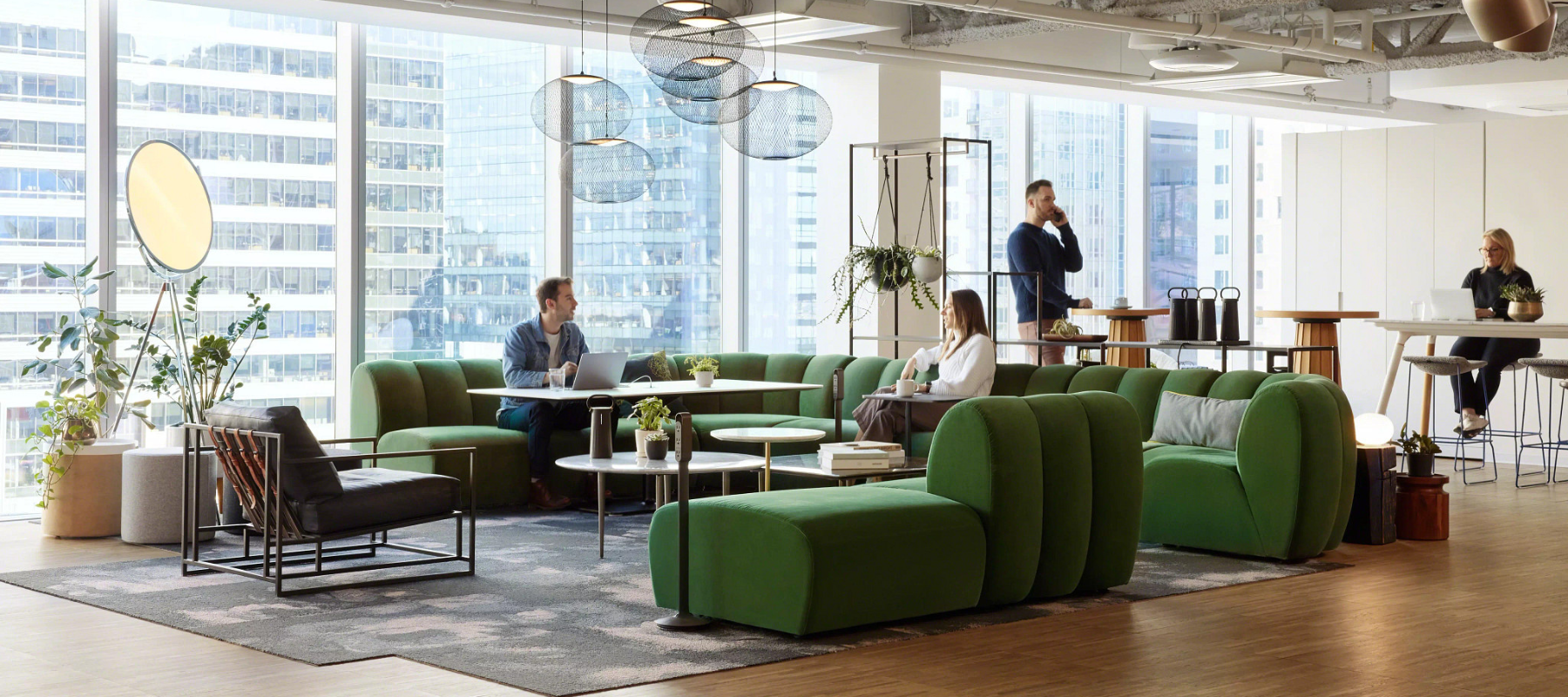
Couldn’t have summed it up better ourselves! Many issues facing the hybrid workplace can be addressed through smart and purposeful workplace design, something that we at Heritage feel extremely passionate about.
Whether it’s providing spaces for hybrid collaboration, private spaces for individuals to focus, or team spaces for socialization, the workplace places a large role in helping employees feel safe and comfortable, providing a sense of belonging and control, allowing them to do their best work.
Our team of workplace experts are here to help you create the best hybrid work experience worth your commute. Contact us today!
